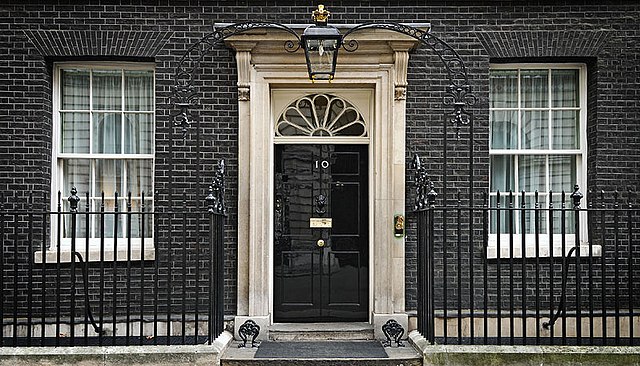La rentrée approche et tu souhaites te familiariser avec des sujets de colle ? Voici un sujet corrigé et commenté, ayant pour thème la popularité de Boris Johnson, accompagné d’une liste d’éventuelles questions qui pourraient être posées. Bon entraînement !
Le sujet
Just what exactly is continuing to keep Boris Johnson in power?
Tim Bale, adapted from The Guardian, April 17, 2022
At the last count, around 80 Tory MPs had voiced their support for the PM, apparently seeing nothing wrong with him breaking the laws he himself had made and misleading parliament about doing so. So far, only three MPs have called on him, in terms, to go since news of him and his chancellor being fined broke last Tuesday, while the only member of the government to quit in protest sits in the Lords not the Commons. […]
The reasons for this, according to the majority of Westminster-watchers, are mainly circumstantial. But is that the whole story? We’re informed, for instance, that even the most jaded of Johnson’s colleagues are having second thoughts after seeing him strutting the world stage once more, with Ukraine providing the party in the media (the columnists and the editors of the Tory-supporting press) with the “Don’t they know there’s a war on?” logic for keeping him in place. Yet, as others have pointed out with reference to two world wars and one Gulf war, that spurious logic hasn’t stayed MPs’ hands before now. […]
And now there’s Rwanda. Apparently, only an out-and-out radical rightwing populist like Johnson could contemplate something so bold, all the more so if the liberal left falls headlong into such an obvious war-on-woke elephant trap. But is that the case? Take it from someone who’s spent far too long studying the issue: Tory governments have always stooped to conquer on immigration. It’s what they do.
We need, then, to look beyond pure contingency at the deeper reasons – some rational, others less so – behind Conservative MPs hanging on to Johnson in spite of what polling, their consciences, and some of the braver souls on their own side, might be telling them otherwise. […]
Perhaps the explanation is psychological? Gratitude to Johnson for helping the Tories win a big majority back in 2019 is one thing, but gratitude is normally one of the most perishable quantities in party politics. “What have you done for me lately?” is normally the question to which leaders need to provide a persuasive answer. And in any case, does that gratitude really entitle the PM to exploit and abuse his supporters’ trust time and time again? […]
Indeed, I would argue that like Churchill and Thatcher before him, Johnson has become what we might call a talismanic leader, one who, possessed by powers that sometimes seem superhuman, even supernatural, to his friends and foes alike will, whatever the current evidence to the contrary, supposedly see their party through the very worst of times and into the sunlit uplands.
A word of warning, however. As Churchill and Thatcher themselves learned the hard way, magic wears off. In an allusion that the prime minister himself may appreciate, talismanic amulets worn in Roman times occasionally bore the Latin inscription utere felix – “good luck to the user”. As we move towards local elections and a byelection in Wakefield, both of which could spell serious trouble for the Tories, Johnson and his parliamentary and media fan clubs are probably going to need it.
L’accroche
Pense à toujours donner à ton jury l’envie de t’écouter dès les premières secondes de ta prise de parole. C’est ce qui permet de faire la différence entre une bonne et une très bonne colle. Pour ce faire, tu peux recourir à une citation, des statistiques ou encore à un fait historique. Mais attention, une accroche doit être très brève et bien reliée au sujet. Si tu veux plus d’informations concernant les accroches, va consulter notre article sur le sujet !
Dans le cas de cet article, puisqu’il parle du soutien pour Boris Johnson, tu peux choisir de comparer les statistiques des élections générales de 2019 (les conservateurs ont obtenu plus de 43 % des voix et sont donc passés d’une majorité relative à une majorité absolue au Parlement) aux chiffres plus récents publiés par YouGov concernant sa popularité (54 % des Britanniques déclarent ne pas soutenir Boris Johnson).
Si tu préfères opter pour une citation, pense à bien la replacer dans son contexte de production. Pour cet article, on peut par exemple se rappeler que durant sa campagne contre Ken Livingstone visant à renouveler son mandat de maire de Londres, Boris Johnson a déclaré : « I am hoping vey much to be re-elected but it is going to be a tough fight. » Comme le suggère l’article, Boris Johnson semble en effet se retrouver dans une situation similaire à celle dans laquelle il était lors de sa campagne pour les élections municipales.
La synthèse
La synthèse est une partie sur laquelle le jury sera très attentif lors de ton passage, et ce, pour deux raisons :
- premièrement, le jury connaît très bien l’article (c’est une épreuve qu’ils ont eux-mêmes préparée, si ce n’est conçue, et ils auront sûrement entendu plusieurs étudiants passer avant toi sur le même sujet). Les examinateurs repéreront donc très facilement les éventuelles erreurs de compréhension des candidats.
- Deuxièmement, la forme de la synthèse est très normée, et si tu ne respectes pas le format attendu, cela se sentira tout de suite. Il faut donc bien te concentrer sur la méthodologie.
Pour faire une bonne synthèse, deux choses sont à garder à l’esprit. Utiliser les synonymes et réorganiser quelque peu l’ordre des idées de l’article, pour bien montrer que tu t’es approprié ce résumé et que tu as bien compris tous les enjeux du texte.
Dans le cas du sujet étudié, le journaliste commence par dire que Boris Johnson est largement soutenu par son parti, situation qui s’explique par les circonstances géopolitiques contemporaines (nommément la menace que constitue la guerre en Ukraine, enjeux à propos desquels Major-Prépa a réalisé un podcast). Pourtant, selon le journaliste, cette explication n’est pas suffisante et la raison de la popularité du Premier ministre réside ailleurs, nommément dans son « aura », ou, en d’autres termes dans l’effet psychologique qu’il exerce sur les membres de son parti et sur la population ; Boris Johnson serait comme iconisé.
À la fin de l’article, le journaliste émet tout de même une certaine réserve et indique qu’un tel effet s’estompe toujours, suggérant que Boris Johnson pourrait perdre une partie de son soutien au moment des élections de Wakefield.
Le plan rapide
Pour ne pas avoir à écrire toute ta synthèse au brouillon, mais également pour éviter de rester trop proche du texte, je te conseille de faire un plan rapide des éléments à mentionner (en trois ou quatre points), puis de compléter ce plan à l’oral avec les informations dont tu te souviens. En effet, au moment de passer, tu auras plus de recul par rapport au texte et pourras ainsi te détacher davantage des mots utilisés par l’auteur.
Pour cet article, le plan suivant peut convenir :
I. How to account for Boris Johnson’s ongoing popularity despite his illegal practices?
II. A double answer: the current geopolitical situation and Johnson as a “talismanic leader”
III. Can Johnson’s popularity stand the test of time: the reference to elections in Wakefield
Ce qui donnera, à l’oral :
In this article, the journalist tries to answer a highly paradoxical question: as Boris Johnson keeps flirting with both disappointment (as illustrated by his agreement with Rwanda for instance) and illegality, how to account for the ongoing support he receives from politicians? The easy answer would be related to the geopolitical situation: as the war in Ukraine is perceived as a potential threat for the United Kingdom, it appears logical to maintain political stability in the country by keeping Boris Johnson as Prime Minister. Yet, the columnist identifies deeper reasons explaining why the PM is not facing strong opposition yet. He indeed offers a more mental hypothesis centered on Boris Johnson’s almost magical or spiritual effect on people by calling him a “talismanic leader” and resorting to the metaphor of the supernatural towards the end of the article as illustrated by his use of the word “spell” in the last sentence. Yet, as he underlines, magic always fades out, which is why he suggests that elections in Wakefield might politically harm Boris Johnson, whose popularity will eventually not stand the test of time.
Le commentaire
Le commentaire est la partie qui te permettra de te différencier à l’oral. En effet, c’est dans cette partie que tu pourras montrer tes capacités d’analyse et de réflexion par rapport au sujet. Il conviendra également d’argumenter en anglais, pour montrer que tu sais non seulement faire preuve de clarté, mais également défendre tes idées.
Pendant que tu lis le texte, tu peux commencer par faire une liste des thèmes liés à cet article que tu pourrais développer. Pour cet article, on peut penser à :
– la question du leadership (comment définir les stratégies politiques adoptées par Boris Johnson ? Dans quelle mesure sont-elles efficaces ? Quelle différence avec Theresa May ? (Concernant la question du Brexit, va consulter notre article dédié à cet enjeu !) ;
– l’accord passé par Boris Johnson avec le Rwanda (qui n’est que brièvement mentionné dans l’article, tu pourras donc donner plus de détails à ce sujet) ;
– les questions liées à la démocratie et à la politique (la politique devient-elle personnelle ? Intéressée ? etc.) ;
– d’autres exemples qui illustrent les opinions impopulaires de Boris Johnson (pensons par exemple à son avis sur l’environnement avant la COP26, qui a ensuite changé comme par miracle. En effet, avant 2021, Boris Johnson avait émis des doutes sur le réchauffement climatique en déclarant : « I am all for theories about climate change, and would not for a moment dispute the wisdom or good intentions of the vast majority of scientists. But I am also an empiricist; and I observe that something appears to be up with our winter weather, and to call it ‘warming’ is obviously to strain the language. »)
Exploite d’autant plus le rapport entre Churchill, Thatcher et Johnson évoqué à la fin de l’article. Les deux Premiers ministres mentionnés sont en effet associés au pragmatisme. Ils ne gouvernaient pas pour plaire au peuple, mais pour régler les problèmes du Royaume-Uni, nommément la guerre pour Churchill et la crise économique pour Thatcher. Ce qui a fait d’eux des figures politiques fortes. Dès lors, dans quelle mesure la comparaison avec Boris Johnson est-elle valable ?
La problématique
Une fois que tu as listé rapidement les grands enjeux que tu vas aborder dans ton commentaire, il est intéressant de penser à une problématique qui guidera ta pensée. Attention, la problématique ne vise pas à répéter la problématique de l’auteur (qui est : Comment expliquer la popularité de Boris Johnson ?), mais à montrer en quoi la démonstration de l’auteur peut être débattue ou réexploitée dans ta réflexion. Les problématiques suivantes peuvent fonctionner :
– Has Boris Johnson’s term changed the way politics work in the United Kingdom?
– To what extent can Boris Johnson be compared with pragmatic leaders?
– Has Boris Johnson swapped his opinions for more political support?
– Is Boris Johnson taking advantage from the international geopolitical situation?
En fonction de la problématique que tu choisis, il faut organiser ta réflexion selon un ordre logique. En d’autres termes, l’ordre de tes parties ne doit pas être interchangeable. Il faut donc penser aux liens (ou transitions) qui articulent tes parties.
Autre conseil
Dès le début de ta partie, essaie de montrer son dynamisme à l’aide d’un paradoxe ou d’une évolution par exemple (rendez-vous sur cet article pour acquérir des concepts te permettant d’être à la fois plus clair.e et plus dynamique dans tes commentaires).
Si on choisit la première problématique (Has Boris Johnson’s term changed the way politics work in the United Kingdom?), le plan suivant peut fonctionner :
I. Politics as a continuum: Boris Johnson as the embodiment of political stagnation?
- Repeating political cycles: the parallel with Churchill and Thatcher
- The continuation of political polarization: from David Cameron to Boris Johnson
II. Making the personal political: the parallel between British and American politics
- Centering the debate on the intimacy of candidates and political figures
- From party politics to individual politics
III. The transformation of political strategies: instrumentalizing democracy
- Political support over political opinions
- Playing with electoral boundaries: the case of gerrymandering
L’ouverture
En outre, sur ton brouillon, n’oublie pas de formuler une idée d’ouverture à la fin de ta conclusion, c’est la dernière impression que tu laisses à ton jury et elle peut être décisive.
Ce plan donnerait à l’oral :
If the article suggests that Boris Johnson’s popularity might fade out (certainly because it has been published in the Guardian, a center-left newspaper), his legacy might nonetheless not. Therefore, has Boris Johnson’s term changed the way politics work in the United Kingdom?
At first sight, the term of Boris Johnson does not seem to have transformed the way politics are led in the United Kingdom. Indeed, the journalist compares him with rather old political figures, namely Winston Churchill (who was Prime Minister in the 1940s and in the 1950s) and Margaret Thatcher (who served as PM in the 1980s). Therefore, how to account for this comparison which suggests that politics and political strategies have remained the same since Churchill’s terms? The two leaders who are mentioned by the columnist are known as pragmatic leaders, meaning that conversely to idealistic politicians, their politics as well as their speeches were anchored in reality (and sometimes in an extremely depressing reality, as illustrated by Churchill’s speeches promising “blood, toil, tears and sweat” during the war for instance). Some of Boris Johnson’s speeches resort to similar strategies, as illustrated by his COP26 opening speech in which he talks about climate change as a “tragedy” and compares it with a bomb which is ticking. Moreover, the political climate under Boris Johnson suggests continuity with the past as the exacerbation of political polarization goes on. Indeed, after David Cameron resigned, Theresa May had to face obstructionism in Parliament, thus showing that political parties are not apt to cooperate. Under Boris Johnson, such polarization found itself all the more enhanced as illustrated by the “anti no-deal” campaign led by the Labour Party in 2019 for instance. This political polarization furthermore seems to be inherited from the United States where presidents are now compelled to resort to executive orders to avoid obstructionism.
The parallel between British and American politics is not limited to polarization. In fact, in both countries, the personal has become political and as historian Skowronek mentions in his 2011 monograph, the political leader has become « the lighting rod of national politics », and his private life appears as more important than his opinions. Look at Barack Obama for instance: his pet dog Bo has been the topic of numerous press articles, showing that mediatic coverage is more and more focused on intimacy. The same observation can be made regarding Boris Johnson: even if he tried to keep his private life secret, The Telegraph published an article which read: “Boris Johnson and Carrie Symonds married in secret wedding ceremony at Westminster Cathedral.” It is therefore no surprise that candidates now take advantage of this trend towards the mediatization of privacy in order to promote their political agenda. A movement from party politics to individual politics can thus be identified in Boris Johnson’s use of storytelling in his speeches. For instance, historian Natalia H. Humeniuk has shown that in his first speech as PM, Boris Johnson has the features of a personal narrative. This argument thus reveals that political strategies have evolved, and that if democracy used to be about ideas, it is now about popularity.
A political leader used to be elected for his opinions, but, as hinted at by the article, Boris Johnson is not popular thanks to his ideas. His opinions and actions have highly been criticized (his agreement with Rwanda consisting of sending back immigrants is widely challenged), yet he remains popular thanks to his leadership and maybe thank to his versatility. Indeed, in the previous years, the Tory Party declared that Johnson was going too much on the left of the political spectrum and was thus betraying the convictions of his Party, a strategy which can be interpreted as an attempt at increasing his political support at the cost of his ideas. Similarly, Boris Johnson is apt to make his ideas more popular through vulagrization, as it was the case during his COP26 opening speech, when he compared the current ecological situation with a popular movie, namely James Bond. Moreover, nowadays, more frequently than ever, politics is centered on how to increase one’s support without having to convince any voter: gerrymandering, or the fact of manipulating electoral boundaries in the U.S., is an example of this idea. A constituency composed of a majority of left-wing voters can be extended (while another one is reduced) in order to increase the number of right-wing voters in the area, thus transforming the former Democrat constituency into a Republican one and showing that politics is now more focused on pseudo-legal strategies aimed at influencing statistics on popularity rather than on the defense of one’s ideas.
Therefore, Boris Johnson’s term did not change politics per se but inscribed itself in the contemporary political transformations shaping the English-Speaking world. The Prime Minister’s leadership corresponds to the movement that the United States has followed for the past fifteen years while his strategies echo American political subterfuges in many ways. Politics is no longer about publicizing ideas and making democratic decisions: it is a process grounded in the run for votes and support, which might explain why some burning stakes remain unsolved, as it is the case for global warming: instead of developing a clearcut political plan to save the environment, Johnson refused to risk his popularity and foisted off the matter on companies during COP26 by declaring: “But we cannot and will not succeed by government spending alone.”
Les questions possibles
Diverses questions peuvent être posées liées à ta compréhension de l’article, à ton argumentaire, ou bien à d’autres thèmes importants dont tu aurais oublié de parler. Voici cinq questions qui pourraient suivre le commentaire formulé ci-dessus :
- You said that The Guardian was a center-left newspaper, an analysis confirmed by the journalist’s criticism of “the editors of the Tory-supporting press.” Do you have any example of right-wing newspaper in the UK then?
Piste de réponse : il s’agit d’une question de connaissances. Il est attendu que tu puisses identifier l’orientation politique d’un journal. Les journaux britanniques de droite sont : The Daily Mail, The Sun, The Daily Express. Attention de ne pas confondre les journaux britanniques et américains ! Clique ici pour consulter notre article sur la presse dans le monde anglophone.
- You seem to consider global warming as an important issue. Can you explain why?
Piste de réponse : c’est une question d’opinion personnelle. Tu peux donc développer ton point de vue sans oublier de donner quelques exemples issus du monde anglophone pour étayer ta réponse.
- You explored the similitudes between Boris Johnson and Winston Churchill or Margaret Thatcher. Aren’t there any differences between them?
Piste de réponse : cette question semble vouloir te pousser dans tes retranchements. Attention, il est déconseillé d’abandonner tes opinions ou de contredire ce que tu as dit dans ton commentaire. Mieux vaut nuancer ta réponse et dire que si Boris Johnson peut être comparé à Churchill ou à Thatcher dans une certaine mesure, ces dirigeants ont bien certaines divergences (prenons par exemple le contexte dans lequel chacun a exercé…).
- You said that Boris Johnson had been criticized by his peers because he was allegedly going to the left of the political spectrum. Do you have any example confirming (or debunking) this idea?
Piste de réponse : cette question vise à tester un point de ta démonstration en t’invitant à le développer et plus spécifiquement à l’illustrer. Les régulations que Boris Johnson a mises en place lors de la pandémie de la Covid-19 ont par exemple déplu aux membres de son Parti, tandis que le Sunday Telegraph a explicitement déclaré que ces régulations étaient de centre gauche. Cette réponse doit bien évidemment être nuancée, car l’accord que le Premier ministre a passé avec le Rwanda peut difficilement être décrit comme une politique de centre gauche…
- You said that in his first speech as PM, Boris Johnson has the features of a personal narrative. Do you have any precise example from the speech which could exemplify your argument?
Piste de réponse : dans le commentaire, nous avons dit qu’une historienne avait prouvé que Boris Johnson recourait à la mise en récit (storytelling) dans le premier discours qu’il a formulé en tant que Premier ministre. Il s’agit ici pour l’examinateur de voir si le candidat a été assez curieux pour aller lire le discours dont parle l’historienne qu’il cite. Ainsi, si tu n’es pas certain.e de pouvoir répondre à ce genre de questions, ne tend aucune perche en citant un théoricien dans ton commentaire. Pour répondre à la question posée ici, tu peux mettre en avant le recours à l’histoire sociale britannique dans le discours en question de Boris Johnson, ainsi que les commentaires anecdotiques qu’il formule dès la première phrase du discours (nommément : « I have just been to see Her Majesty the Queen. »).
Bravo si tu as fait cette colle, et rendez-vous sur un autre article dédié aux oraux d’anglais pour continuer à t’entraîner !













